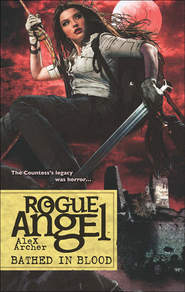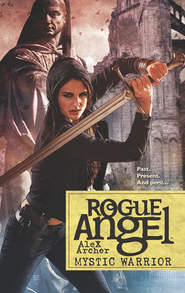По всем вопросам обращайтесь на: info@litportal.ru
(©) 2003-2024.
✖
False Horizon
Автор
Год написания книги
2019
Настройки чтения
Размер шрифта
Высота строк
Поля
As the desperate so often do, he developed a keen eye for opportunities. In his youth he worked to become an expert guide on the city streets for foreigners who came to this land seeking to ascend to the heavens. As he grew older, Tuk’s ability to navigate unseen led him to another class of foreigner with little interest in the mountains themselves, aside from what lay across their snowy peaks.
By the time Tuk finally understood that he held a certain amount of value to the various intelligence services that employed him, he was already deep within the community as a tracker. At first, representatives from several organizations had offered him full-time appointments, but Tuk had shrugged them off. He thought his best chance of prospering lay not in the fold of one nation’s spies, but in the community as a whole. He would hire himself out to whoever could afford his fee, which grew with each passing year.
As the years advanced, however, Tuk found himself being replaced with the advent of sophisticated electronic tracking systems. Gradually, his former clients opted for their tiny microchips and circuit boards over the wiry man they’d relied on for so long.
And Tuk found his fortunes fading away. But not entirely. Every now and again, someone would still seek him out. But his espionage days were over. His new clients were less patient people. Drug runners, arms dealers and other like folk used Tuk because it was cheaper than buying the technology to do the work.
And Tuk, ever the adaptable sort, was forced to lower his own personal standards and accept the work.
He hated it for the most part. Just being in contact with the clients made him feel dirty and his soul unclean. Tuk would only tolerate their presence for so long—enough time to get the details of the job and the payment for his services at the completion.
He’d had to give up the respect he’d once enjoyed from the spies. In him, they’d seen a fellow craftsman. Tuk had worked hard to nurture his talent and they understood that. Despite the fact that he worked for no country but himself, they’d all treated him like one of their own. And Tuk had enjoyed that feeling of belonging.
The men he worked for now cared little about his talent unless it produced results. More so, they treated Tuk like an insignificant mosquito that they barely found tolerable. They all had insulting nicknames for him and tossed his payment at him whenever they were finished.
Tuk was seriously considering leaving Katmandu and moving out into the countryside. He had a little money left, stashed away in a variety of hiding places in the city so utterly obscure that he was certain no one knew where they were. He could use that money to set himself up in a small house. Perhaps he would become a farmer.
He imagined life, looking out at the vastness of the enormous mountains each day, would be calm and enjoyable. Even as he had toiled in the narrow streets of Katmandu, Tuk had always felt drawn to the countryside. He’d come from somewhere out there. And he knew deep in his heart that someday he would return.
The previous day had started like any other. He left the tiny apartment he rented and made his way to find breakfast. He’d only traveled ten yards from his home when his instincts sparked up and he knew that someone was watching him.
At first, he was worried that one of the drug runners was going to kill him. But he disregarded that notion. Ever since he had started dealing with criminals, he’d taken extreme caution in how he worked his way back home each night. He used routes that doubled back on themselves. Tuk was sure that none of them would be able to track him.
But after another few blocks, he thought that maybe someone from his earlier life was stalking him. The prospect of that puzzled and thrilled him at the same time. He was puzzled because, in all his years, he’d never done anything to betray the confidences of whomever he worked for. He’d never done anything to warrant someone wanting to kill him.
And in that confidence, Tuk felt his heart soar. Perhaps, just perhaps, they were coming back to him for work. Maybe their fancy gadgets couldn’t do what Tuk could do. Sure, he was older now, but he still had vitality flowing in his veins. He could still complete their assignments with ease.
At the food cart, Tuk ordered his meal and then turned, casually gazing up the street. He saw nothing suspicious.
He frowned and cursed himself silently for being such a hopeful fool. He was getting old, he thought. And his desire for his former life had made him think that a return was possible when it was not.
Those spies, he told himself, are long gone. And they’re not coming back.
“Excuse me.”
Tuk nearly leaped out of his own skin at the sound of the low voice. He turned and was immediately struck by the size of the man standing next to him. He loomed large over the entire food cart and Tuk was completely in the man’s shadow.
But while there was no doubt that the man was both imposing and ominous, there seemed no threat directed at Tuk. If anything, Tuk felt that the man might even respect him a little. It was a theory quickly turned to fact when the man spoke again.
“Are you Tuk?”
The inflection of voice told Tuk all he needed to know. The man knew him not from his dealing with thugs, but from his intelligence work. Tuk smiled. “Yes. I am he.”
“I would like to ask for your assistance in a small matter I have to deal with,” the man said. “And I will pay you very well for your services, say twice the rate you used to obtain from the British?”
Tuk smiled. “That would make me very happy indeed.”
The man nodded. “I was certain it would.” He gestured to the street. “Walk with me and I shall tell you of the matter.”
Tuk fell into step beside the stranger and they moved off down the street. Tuk found himself marveling at the manner in which the giant man moved. Not so much like a steamroller or some other juggernaut, but with the practiced, careful step of a dancer. The man’s grace belied his immense size and Tuk knew this was no ordinary spy.
“She will come from America. A young woman in her twenties. Dark hair that flows down past her shoulders. She is lithe. Quick. And in battle, she is a most formidable opponent.” The man showed him a picture of a beautiful woman.
“I won’t fight her,” Tuk said.
“I should hope you won’t,” the man replied. “But have little doubt that if she spots you, then she will make every effort to find out why you are following her. And she can be most persuasive.”
Tuk smiled. “She will not see me.”
“Indeed. And that is exactly the reason I have come to you, my friend. I know of your reputation. I know of your skill. This is not a matter to be entrusted to a faceless bit of technology, but rather to an expert such as yourself.”
“I will follow her from the moment she leaves the plane until such time as you wish me to stop,” Tuk said. “And never will she be the wiser.”
“Excellent. Excellent.” The man handed Tuk a small envelope. “Take half of the payment now for your trouble.”
“Trouble?”
The man chuckled. “You are used to never being seen and yet here you are walking down the street with me. And I tend to attract attention despite my best efforts. I am therefore ruining your usual cloak of invisibility. For that, I sincerely apologize.”
“You are not troubling me in the least,” Tuk said. He appreciated the man’s deferential attitude. “Had you not employed me, I might again find myself needing to find a job with a lower class of person. One I do not wish to seek out, but circumstances have dictated that I do just that in order to survive.”
The man nodded. “The realities of life do not tolerate the whims of our hearts, do they?”
“Not often.”
“Take this assignment and I will triple your payment. I know the pain of working with idiots. I wouldn’t wish it upon anyone.”
“Your generosity is most appreciated.”
“As is your discretion,” the man said. “And your talent.”
“What would you have me do once I pick up the trail?”
“Nothing. You do absolutely nothing except follow her. For you to attempt otherwise would be suicidal.”
There was nothing boastful or arrogant about the manner in which the large man spoke. It was simply matter-of-fact. And Tuk had little reason to doubt the man’s words.
“As you wish.”
“She will most likely head to Thamel.”
“What makes you say that?”
“That is where all foreigners tend to go, isn’t it? And this woman is adept at blending in with the surrounding scenery.”
Tuk nodded. “I won’t let that fact enable any assumptions on my part.”
“I know this.”











